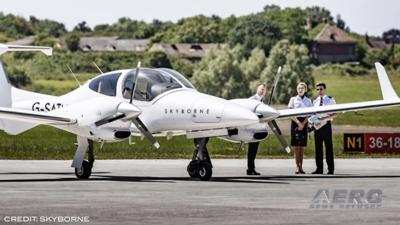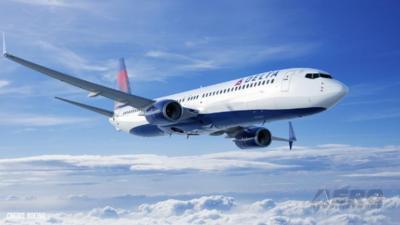High Times and Company Towns
Delta is among the world’s oldest, largest, and most profitable airlines. The Atlanta-based carrier has outlasted behemoths the likes of Pan Am, Northwest, Continental, and Eastern—and it didn’t do so by being short-sighted or complacent.

Delta’s Propel program instantiates the kind of foresight and shrewdness that have kept the company at the pinnacle—more or less—of the gleaming $776.86-billion abattoir that is the global airline industry.
Broadly speaking, the Propel program transforms baggage-handlers and ticket-agents into airline pilots. Viewed through a more refined lens, the program—which was founded in 2018—allows Delta personnel who hold Private Pilot Certificates and have been in the carrier’s employ for more than three-years to undergo a screening process and—if accepted—receive qualified job offers to become Delta pilots.
Following screening and selection, candidates attend Skyborne Airline Academy in Vero Beach, Florida, where they’re rammed through flight-training up to and including Airline Transport Pilot (ATP) certification. Suitably rubber-stamped, the fledgling aviators are herded to a Delta Connection carrier for 42-months of teething in regional jets before transitioning to pilot positions with Delta.

Delta ascribes nobility to the Propel program, asserting it has three main areas of focus; college, company, and community. The carrier alleges the antecedent fundaments constitute a framework that supports Delta employees whose love of aviation compels them to aspirations of becoming Delta pilots. The airline further states the Propel program allows it to continue to invest in its people, tapping into their passion for aviation and the strength of the Delta culture.
Critics of the Propel program—and similar initiatives undertaken by United and Lufthansa—argue that the establishment of wholly internalized pilot recruitment and training programs are bad for aviation insomuch as they amount to company-towns beset with one-dimensional ideological, procedural, and cultural approaches to flying. Such environments are conducive to the proliferation of bad—or at the very least, limited—thinking, and most often eschew ideas and approaches originating outside their own borders.
Pilot unions cite and vehemently oppose the low-pay and long-hours to which graduates of airline academies are chronically subject. ALPA members widely espouse the notion that academy pilots manifest a Stockholm Syndrome mentality, happily toiling endlessly for poverty-wages in conditioned gratitude for the opportunities they believe they’ve been afforded by employers whose investments in them are, meanwhile, exponentially recouped.

Controversy aside, conduits such as Delta’s Propel program are likely here to stay. The academy model allows airlines to exercise control over pilot trainees while introducing them to operational orthodoxies and company cultural mores. Locking eyes on captive students from the get-go allows airlines to monitor the development of their skills and maturity, and determine whether or not trainees are apt to hack the demanding airline pilot lifestyle. Habit patterns are easily instilled and reinforced within the academy construct—but as all Doobie Brothers fans know, the journey from habit to vice is a short one.
 ANN's Daily Aero-Linx (05.06.25)
ANN's Daily Aero-Linx (05.06.25) ANN's Daily Aero-Term (05.06.25): Ultrahigh Frequency (UHF)
ANN's Daily Aero-Term (05.06.25): Ultrahigh Frequency (UHF) ANN FAQ: Q&A 101
ANN FAQ: Q&A 101 Classic Aero-TV: Virtual Reality Painting--PPG Leverages Technology for Training
Classic Aero-TV: Virtual Reality Painting--PPG Leverages Technology for Training Airborne 05.02.25: Joby Crewed Milestone, Diamond Club, Canadian Pilot Insurance
Airborne 05.02.25: Joby Crewed Milestone, Diamond Club, Canadian Pilot Insurance




